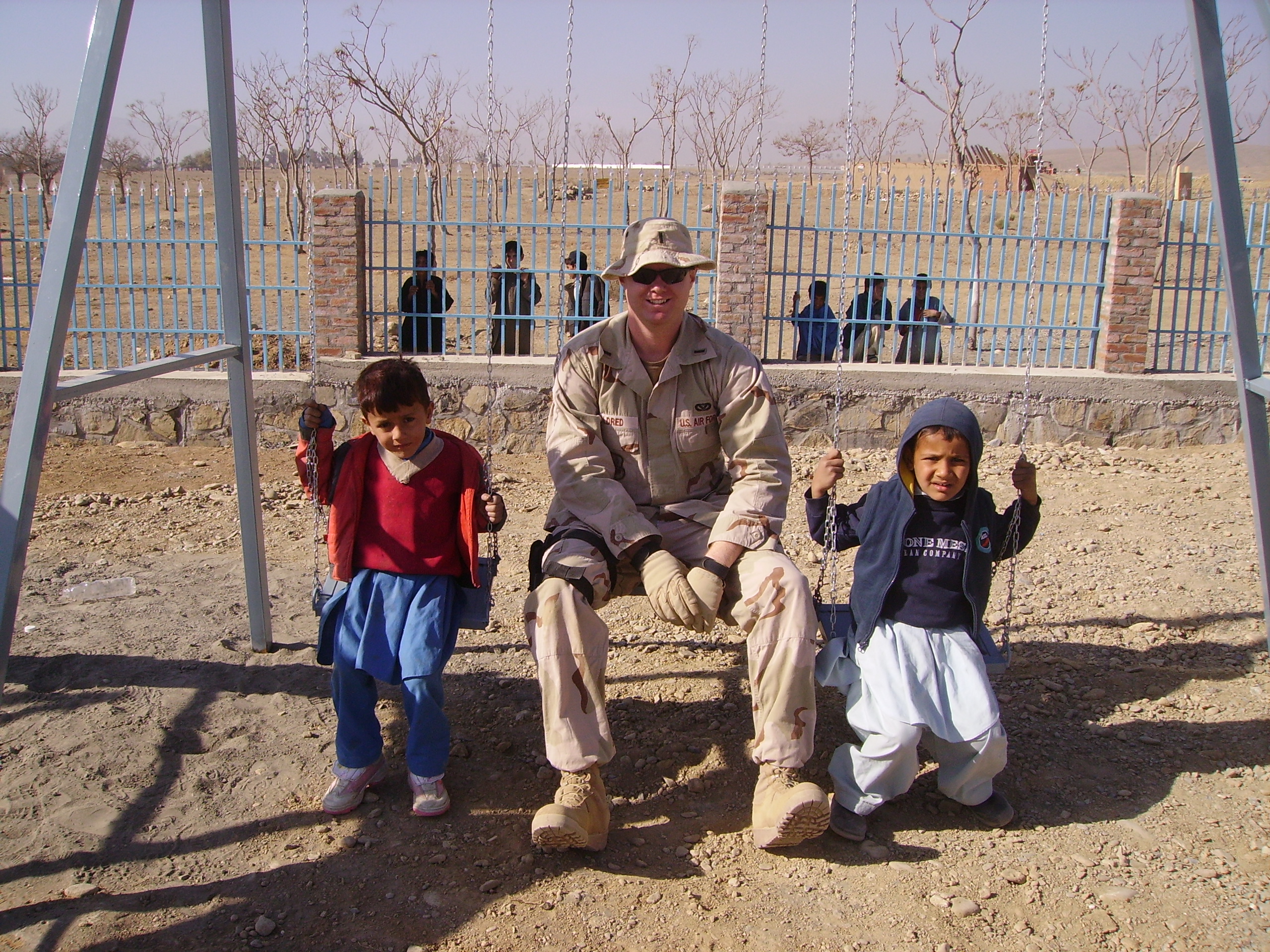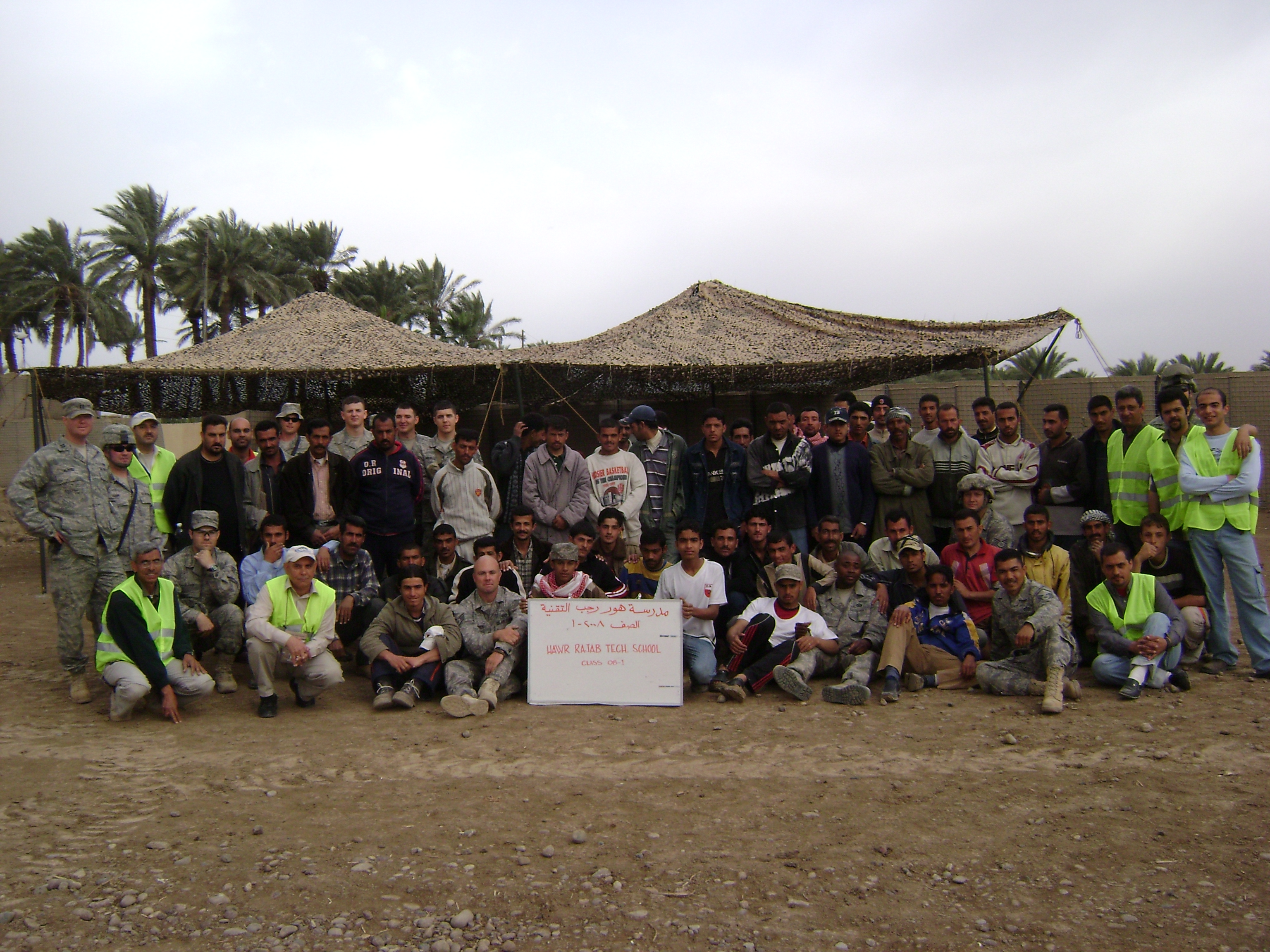Nearly 10 years ago, engineer and U.S. Air Force Major Josh Aldred was stationed in the small Iraqi village of Hawr Rajab where Sunni militiamen previously fought against the United States military. The local village was destroyed. But Aldred and his team of engineers began teaching the residents practical construction skills to help them rebuild, and, in the process, Aldred’s team discovered another critical need.

“As we were showing them how to build their houses, we realized many of the residents couldn’t read or do basic arithmetic, so we decided to bring in some of our interpreters to teach them these skills,” Aldred said. “It was amazing, and it became an extremely rewarding program.”
This kind of service has become a common theme for Aldred, who has dedicated his life to helping others. As a result of his hard work and dedication, the National Society of Professional Engineers named him the 2016 Federal Engineer of the Year.
Aldred received his M.S. and Ph.D. in civil engineering from the Cockrell School in 2010 and 2015 respectively. He joined the Air Force after completing his bachelor’s degree in civil engineering at Northern Arizona University in 2003.

Unsurprisingly, Aldred is on a teaching track in his military career and has already taught several civil engineering courses at the U.S. Air Force Academy in Colorado Springs, CO. After completing his military assignments, he plans to teach civil and environmental engineering courses at the academy.
“I haven’t taken a traditional career path for an engineer in the Air Force,” Aldred said. “I never really anticipated going back to school and getting my master’s degree or Ph.D., but I have a deep desire to learn and to pass knowledge on to other people, so it was a good career path for me to go back to school and teach as well.”
Aldred has been stationed in South Korea at Kunsan Air Base since August of 2015. Within eight months of arriving, he and a team of 170 engineers installed more than $6million in HVAC equipment at the airbase. Aldred oversees the entire team, which includes both Air Force military and Korean civilian engineers, and is responsible for the sustainment and repair of all facilities on the installation.
“We maintain the airfield, all the facilities, the infrastructure and the utilities here,” Aldred said. “It’s pretty hectic. There has been a lot of work to do, and I’m proud of what my team has been able to accomplish here.”
When deciding where to go for his master’s and Ph.D. as part of his teaching track, Aldred chose UT Austin because of the prestige of its civil engineering program.
“I have seen the program’s reputation continue to improve, which makes me really proud to be an alum,” he said. “I feel like I bought stock in Apple!”
During his time at the Cockrell School, Aldred worked closely with Richard Corsi, who is now the chair of the Department of Civil, Architectural and Environmental Engineering, on research projects focused on improving indoor air quality. Aldred said he gained a new appreciation for research and lab methods that he has since carried with him throughout his career.
“In the end, gaining those research skills also provided me with some really great critical thinking skills, which are extremely useful not only in research but in life,” he said.
When he is not on assignment, Aldred lives at home in Austin with his wife, Vanessa. He continues to serve his community by volunteering for programs like Mobile Loaves and Fishes, which delivers prepared meals to the homeless. Their two dogs, a shelter rescue and former military working dog in training, keep them busy in their free time.
“One thing I’ve come to learn as an engineer is that we have unique skills that can really benefit society, so I would urge students to look for opportunities to serve early on,” Aldred said. “I’m trying to serve through the military now, and later I want to use my engineering skills to teach and serve other folks as well.”